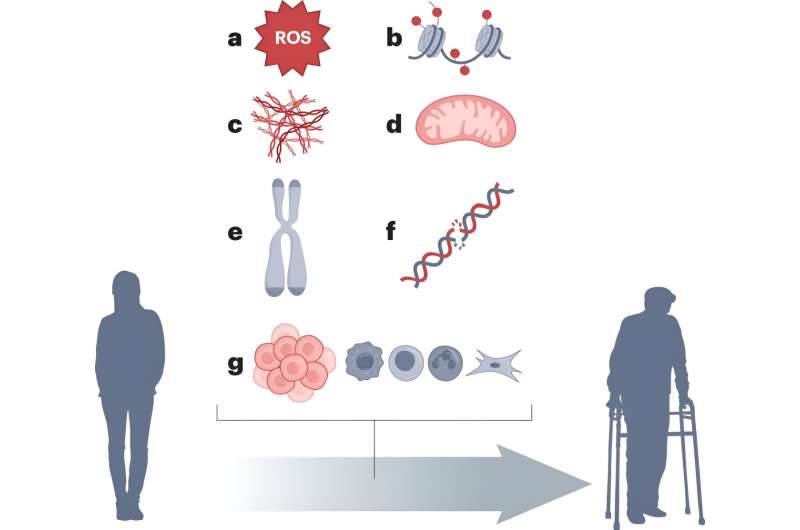This article has been reviewed according to Science X's editorial process and policies. Editors have highlighted the following attributes while ensuring the content's credibility:
fact-checked
peer-reviewed publication
trusted source
proofread
Evaluating research on causal factors of human aging and identifying gaps in knowledge

Factors causing aging, rather than being a consequence of getting older, are a topic of major debate among scientists. Now, new research begins to consider how we determine what's behind the wheel of human aging.
In a new paper published in Nature Genetics, noted aging academic Professor Joao Pedro de Magalhaes has assessed models of aging from animals and human genetics to evaluate how existing research has addressed the question—and how future research can tackle this challenging question.
The article, published today (Jan. 19), looks at models of research to test theories of causal aging, including the now-declining free radical theory; and considers how these different models can support the search for causal factors, and which hold the greatest potential for answering this question and consequently for clinical translation.
Professor de Magalhaes, of Molecular Biogerontology at the Institute of Inflammation and Aging at the University of Birmingham said, "What makes us age is a question that humans have been grappling with for millennia, from Aristotle's first musings 2,000 years ago. Today, various models of aging suggest that changes to everything from the genome, stem cells and the immune system are involved in aging in humans. Still, we haven't yet managed to sort out what causes aging rather than what occurs in and on our bodies as a result of aging.
"While recent advances in the field of human aging have moved away from trying to tackle this admittedly wicked problem, and have focused on testing ways to manipulate aging to extend healthy life, the ability to answer this incredibly difficult question empirically and definitively could set about a new revolution in biomedical sciences. If we could target therapeutically the underpinning drivers of aging it would result in a paradigm shift in medicine. Instead of treating age-related diseases one by one we would be able to prevent them by retarding the whole aging process."
More information: João Pedro de Magalhães, Distinguishing between driver and passenger mechanisms of aging, Nature Genetics (2024). DOI: 10.1038/s41588-023-01627-0



















